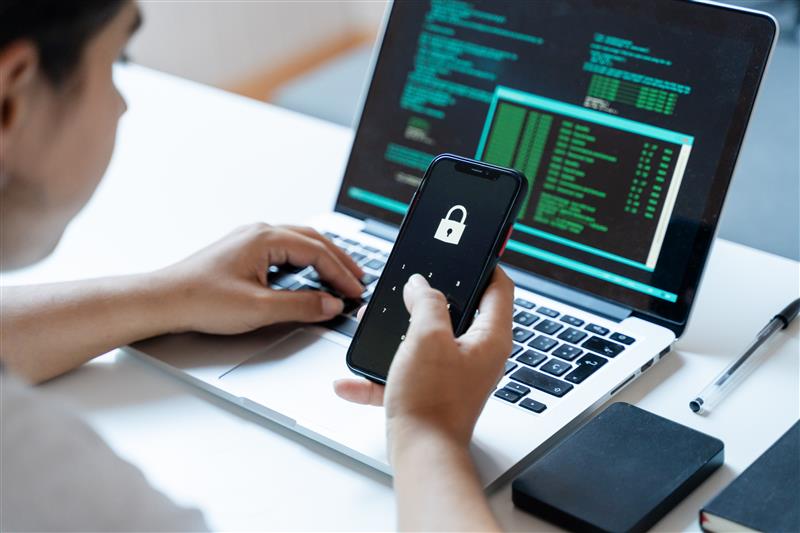What to Do if Your Information is Found on the Dark Web

Alright: You’ve taken your personal information off the Internet; you no longer fear hackers or identity thieves. You breathe a sigh of relief.
But what if your information is on the dark web? The dark web, darknets, and the larger deep web can be major trouble. But IDShield has the expertise necessary to mitigate dark web identity theft.
Don’t know much about the dark web? Let’s start with the basics.
What is the dark web?
Many don’t quite know what the dark web is.
The dark web is basically the Internet, atop which users run an overlay program that allows them to remain anonymous.
And there’s an obvious problem there. Users who can’t be traced can’t easily be stopped from stealing your information—not to mention committing any number of atrocious crimes such as sharing child sexual abuse imagery, recruiting terrorists, and buying and selling illegal, sometimes deadly drugs.
By now you’re wondering how to remove your information from the dark web.
Monitoring the dark web is difficult, and it can be tricky to get personal information removed from it, so it’s best to take precautions against dark net identity theft before it happens.
What is personal information?
Why is my info on the dark web? Because cyber criminals stole it and put it there. Personally Identifiable Information—or PII—is sensitive personal information that thieves can steal to commit all sorts of fraud.
Your PII includes your:
- Full name
- Date and place of birth
- Email addresses
- Phone numbers
- Personal photos
- Mother’s maiden name
- Court documents
- Driver’s license
- Passport
- Citizenship status
- Handwriting samples
- Family members
- Place of work
- Social Security number
As you can see, a dark web data breach allows cybercriminals to harvest an extensive amount of personal data. And certain elements of your PII are harder to protect than others: Your name, date of birth and what you look like are, for instance, unchangeable. But you can change, say, your phone number—and if it’s showing up on the dark web, you may want to do so.
What to do if your information is found on the dark web
Experienced a dark web data breach? Let’s go over six steps you can take.
1. Check your credit
i. Generate a credit report
You can get one free credit check per 12-month period. This will check all three credit bureaus (Equifax, Experian, TransUnion). If there’s anything mysterious on there, be sure to report it.
ii. Choose a credit freeze
According to the Federal Trade Commission (FTC), you can freeze access to your credit score. You can still apply for jobs and apartments, but no one will be able to view your credit score. You’ll want to contact the three credit bureaus to make sure each has received your freeze request.
2. Monitor your Social Security number
According to the identity theft wing of the FTC, if your Social Security number is stolen you should follow these steps:
- Call companies and vendors where you know fraud has occurred
- Place a fraud alert and generate your credit report
- Report identity theft to the FTC
- File a police report (optional) Then:
- Close any new accounts opened in your name
- Ask vendors to remove charges that the identity thief made
- Correct your credit report by writing a letter to each of the three bureaus
- Freeze your credit report (optional)
3. Watch your credit cards & bank accounts closely
In the event of suspected fraud, get in touch with your bank right away. Cancel credit cards and have new ones sent out to you. Put a freeze on your bank account or have a banker help you open a new one with a new account number.
4. Protect your account passwords
Check out our previous chapter on how to delete email addresses and social media accounts.
You’ll also want to perform a Google password checkup to make sure all your saved passwords haven’t been breached. Open your Google account, then go to Google Password Manager, then the Password Checkup tool.
5. Keep your driver’s license safe
Report your stolen or lost driver’s license to your state’s Department (or Bureau) of Motor Vehicles.
6. Secure your passport
Report a stolen or compromised passport to the U.S. Department of State, Bureau of Consular Affairs.
How to protect yourself from personal information leaks on the dark web
Dark web privacy is concerning. But losing your information to dark web users doesn’t have to be disastrous. You’ll want to take some precautions so you can avoid making calls and mailing letters to various agencies and merchants. These, while helpful, just take up a lot of time.
Wondering how to protect your privacy online? Here are a few recommendations.
- Change usernames and passwords frequently
- Set up multi-factor identification on all devices
- Check your credit report from time to time
- Check on your bank account frequently
- Watch out for suspicious charges or demands for loan payment
- Don’t enter sensitive information on public computers
- Don’t include sensitive information in emails
- Do not reply to odd or unsolicited emails
- Install anti-malware firewall protection
- Don’t mention personal information on social media
- Make Internet purchases with gift cards not associated with your banking information
The importance of safeguarding your personal information online
A dark web breach can lead to identity theft. Dark web hackers can glean sensitive information that you thought you’d removed from the Internet. And once dark web hackers have that information, it’s impossible to block them from using it due to the dark web’s complex encryption system. In other words: How to remove your info from the dark web? Under many circumstances, you can’t.
But you can do your level best to prevent that from happening in the first place. Be proactive about protecting your Social Security number, banking information and other pieces of sensitive data: Change passwords frequently, monitor banking and credit information, and don’t ever publish sensitive information on social media.
Still wondering how to protect your information on the dark web? IDShield can help. Visit our website to learn more about our information protection services.
Frequently asked questions
Can you remove your information from the dark web?
In almost all cases, it is impossible to remove your information from the dark web.
What to I do if my information is on the dark web?
If your information is discovered on the dark web, you need to secure your personally identifying information as thoroughly as possible: Check your credit, monitor your bank accounts, freeze access to your Social Security number.
While it isn’t possible to have your personal information removed from the dark web, you can take the above steps to stop further theft.
Can I remove my email from the dark web?
You can’t remove your email from the dark web.
Should I change my phone number if it's on the dark web?
If possible, you should change your phone number if it’s found on the dark web. Then you’ll need to secure that new number.
What if my SSN is on the dark web?
You can put a freeze on access to your SSN by calling the FTC. You may also want to file a police report.



